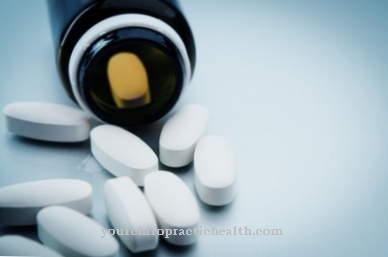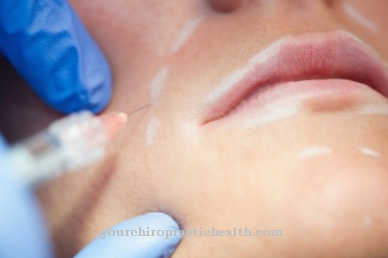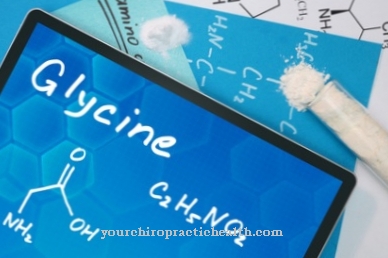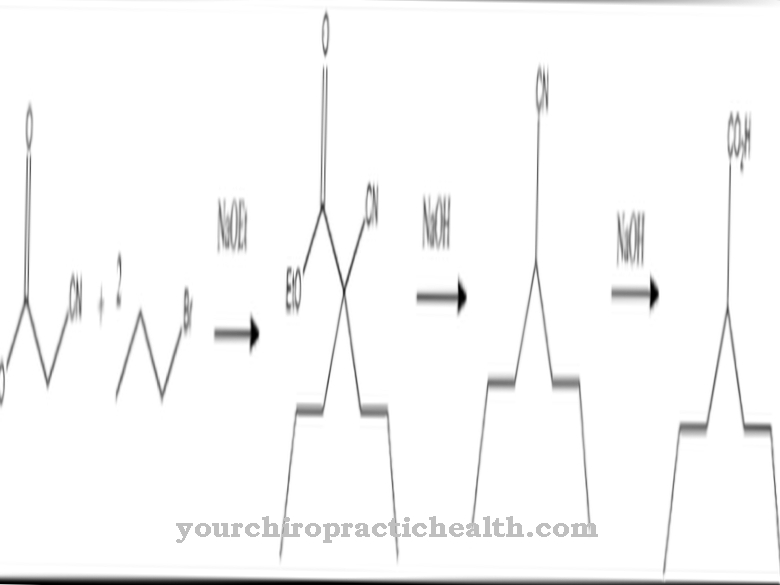The drug Isotretinoin is an important means of treating acne. It is used internally and externally.
What is isotretinoin?

Isotretinoin will too 13-cis retinoic acid called. What is meant is a cis isomer of tretinoin. The active ingredient is one of the non-aromatic retinoids. As a positional isomer of retinoic acid, isotretinoin forms part of the vitamin A metabolism.
Isotretinoin was first approved in the United States of America in 1982. At that time, the teratogenic effects of the substance could already be demonstrated. Isotretinoin is said to have a stronger teratrogenic effect than thalidomide, which made it dubious because of the drug Contergan and triggered the Contergan scandal. Numerous children of pregnant women who had ingested Contergan were born with deformities. For this reason, isotretinoin must not be used during pregnancy. The pharmaceutical company Roche brought out the active ingredient for the treatment of severe acne under the name Accutane® in the 1980s.
Pharmacological effect
Isotretinoin is one of the retinoids that are natural derivatives of vitamin A and are found on a broad front in the human body. They cause the cells to grow faster.
If a person suffers from acne, the increased activity of the sebum glands causes the pores to clog, which in turn causes their inflammation. This is noticeable through purulent pustules and pimples. However, if the body receives additional retinoids through the use of isotretinoin, these bind to the corresponding receptors, which leads to increased growth of cells in the upper layers of the skin. The consequence of this is the loosening of the horny layer of the skin. This makes it easier to peel off the epidermis. At the same time, the sebum glands are impaired so that the clogging of the pores is reduced.
The exact mechanism of action of isotretinoin has not yet been fully determined. It is clear, however, that suppressing the production of sebum and reducing the size of the sebum leads to an improvement in acne symptoms. In addition, isotretinoin has anti-inflammatory effects. This cleanses the skin from the inside, which can be recognized by a finer complexion with fewer impurities.
If isotretinoin is used orally, only about 25 percent of the active ingredient reaches the blood from the intestine. The substance is broken down in the liver. Isotretinoin is eliminated from the body in the stool and urine. In the case of external use, this results in a local effect of isotretinoin. Only small amounts are absorbed by the blood, so the risk of side effects is significantly lower.
Medical application & use
Isotretinoin is administered for the treatment of mild to moderate acne, which is inflammatory or non-inflammatory. Depending on the severity of the skin disease, the agent is administered internally or externally. If the course of acne is particularly pronounced, isotretinoin can also be taken in tablet form.
If, on the other hand, the acne is mild or moderate, isotretinoin is used as a gel or cream. Usually, the patient applies a thin layer of the product to the affected skin area once or twice a day. If the course is severe, soft capsules are taken orally, the daily dose of which is between 0.5 and 1.0 milligrams per kilogram of body weight. It is recommended to take isotretinoin with meals as it is then better tolerated. Isotretinoin is only available in pharmacies on presentation of a doctor's prescription.
Risks & side effects
The use of isotretinoin can be associated with undesirable side effects, which is particularly true for internal use. About 10 percent of all patients suffer from side effects. These include inflamed or dry lips, eye irritation, inflammation of the conjunctiva, dry skin, rash, itching, an excess or lack of blood platelets, anemia (anemia), muscle pain, joint problems, disorders of lipid metabolism, inflammation of the nose and throat, nose bleeds, headache as well as blood in the urine.
Back pain is not uncommon in adolescent patients. Hypersensitivity reactions, hair loss or allergies only occur occasionally.
Some side effects depend on the dosage of isotretinoin. If the dose is reduced or the therapy is discontinued, the side effects also disappear in most cases. When used externally, side effects such as skin irritation, burning, itching, redness, lightening of the skin and sensitivity to light can occur. Usually there is also an increased risk of sunburn. In individual cases, the use of isotretinoin leads to drowsiness and night blindness, which may impair the ability to drive.
Under no circumstances should Isotretinoin be used during pregnancy and breastfeeding. The reason for this is a considerable deformity-promoting effect of the drug. Another possible contraindication is hypersensitivity to isotretinoin. Since the active ingredient, together with sunlight, promotes the degeneration of skin cells into skin cancer, exposure to UV light must be avoided.
Internal use should be avoided in the case of high vitamin A concentrations within the body, disorders of lipid metabolism associated with increased blood lipid levels and disorders of liver function. For example, during isotretinoin treatment, the patient may not donate blood in order to protect pregnant women from the isotretinoin-containing blood.
Attention should also be paid to interactions that may result from taking isotretinoin at the same time as other medicinal products. For example, there is a risk of increased brain pressure when using antibiotics such as tetracyclines. In addition, isotretinoin should not be administered at the same time as other vitamin A preparations, otherwise there is a risk of overdosing.



























